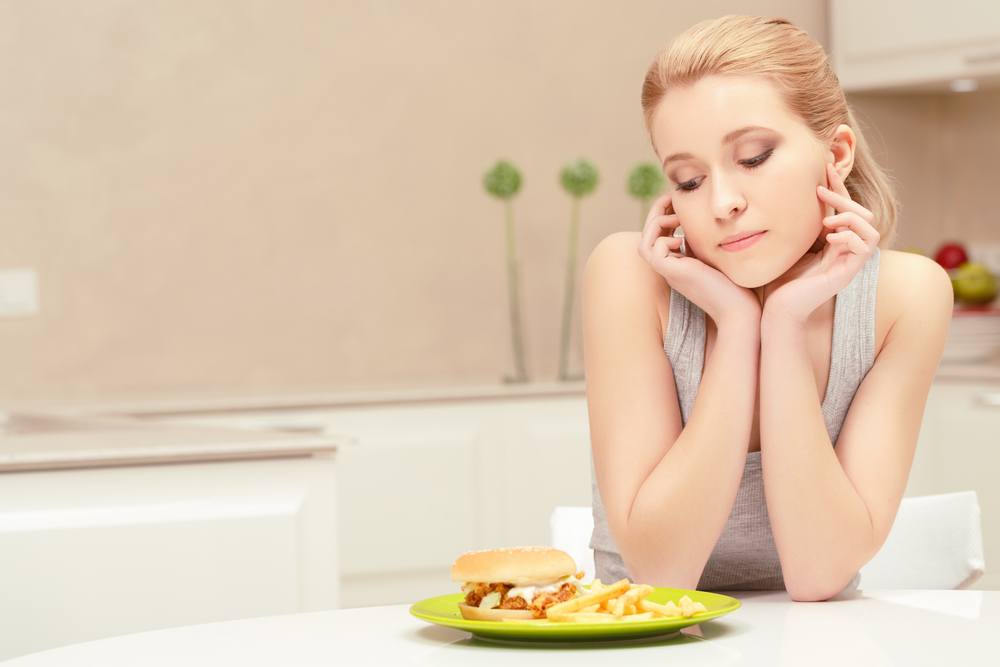5 Healthy Ways to Cope with Your Eating Disorders

You’re walking into a supermarket and going into panic-buying mode, grabbing everything you can get your hands on. The food is calling you, telling you the only way to quell your fears is if you get more and more. You’re going to the store only to find nothing of interest there…although the shelves are filled with food products. Your eating disorder is telling you that you don’t need to eat, you’re not hungry anyway…you haven’t been in a while so it’s ok to come back another time.
These might be simple scenarios for some, but they are real-life problems for at least 30 million people in the United States, who suffer from an eating disorder such as anorexia, bulimia, or binge eating disorder.
In the context of the coronavirus pandemic, social distancing and sheltering in place is difficult for everyone but it can feel extremely daunting for those struggling with eating disorders.
“Coronavirus impacts all of us, but there are added stressors for those with eating disorders,” says Claire Mysko, CEO of the National Eating Disorders Association. “Social distancing and isolation are in direct contradiction to what’s emphasized in recovery.”
If you (or someone you know) are fighting eating disorders and finding it difficult to stay on the right track, constantly remind yourself that there’s nothing to be ashamed about. There are millions of people out there in the same situation. Here are five healthy ways to cope with your eating disorders and avoid slipping into past behaviors:
Healthy ways to cope with your eating disorders
Practice acceptance
We are living stressful times, experiencing the first pandemic since 1918. It’s ok to feel like you’re struggling more but this doesn’t mean you are going to relapse. Beating yourself up will only add to your distress.
Make sure you stay nourished
Just because you are spending all of your time at home doesn’t mean you should eat less than you did before the quarantine. Unless your doctor advised you against consuming certain foods, aim to have at least five or six meals a day (breakfast-lunch-dinner and snacks in between) which incorporate all the major macronutrients (protein, fat, fruit, vegetables).
You can also opt for meal replacements or nutritional shakes (instead of snacks) to make sure you stay nourished and energized.
Exercise
As frustrating as exercise might be for some, it’s a great way to distract yourself from the negative thoughts and improve your overall mood. Instead of doing nothing all day, try working out a few times a week, at your own pace. There are plenty of workout programs you can find online.
Renew your fitness wardrobe and start tracking your fitness journey in this journal. You’ll be surprised by how helpful it can be for your overall wellbeing.
Expand your coping strategies
If you’ve resorted to eating to cope with the added stress and anxiety, it’s time you try new coping mechanisms. Consider other ways to relieve distress and achieve control over your life. Think about taking some online classes, such as painting, or doing something to help you discover your passion like doing yoga, reading (this book is a really good resource for those impacted by eating disorders ) or creating your own meditation room.
Stay connected
Don’t hide from the world, especially now, when you’ll be needing even more support. We used to blame phones, apps and computers for making us self-isolate and interact less with others. It’s time we take advantage of the amazing opportunities they provide and stay in touch with our family and friends.
Use Facetime for group get-togethers, Netflix Party to watch movies or Words With Friends to play all sorts of brain games. If you already live with your family, distract yourself and have fun by playing this exciting game! Discover more games to play during lockdown here!



